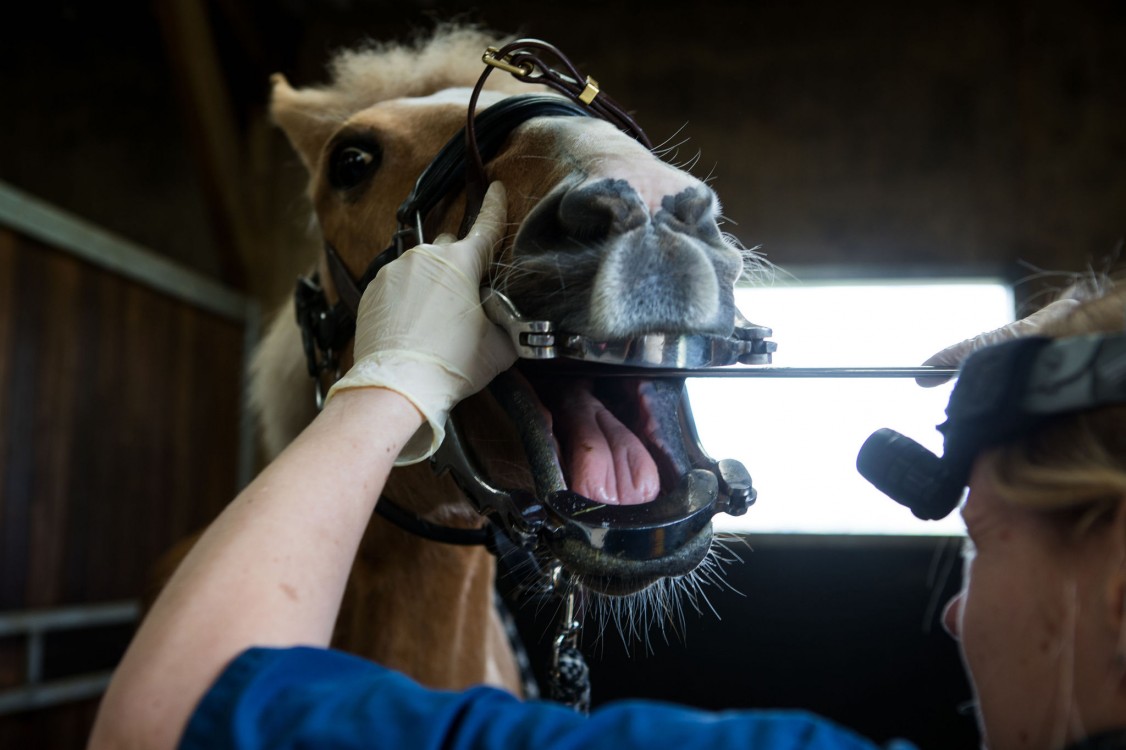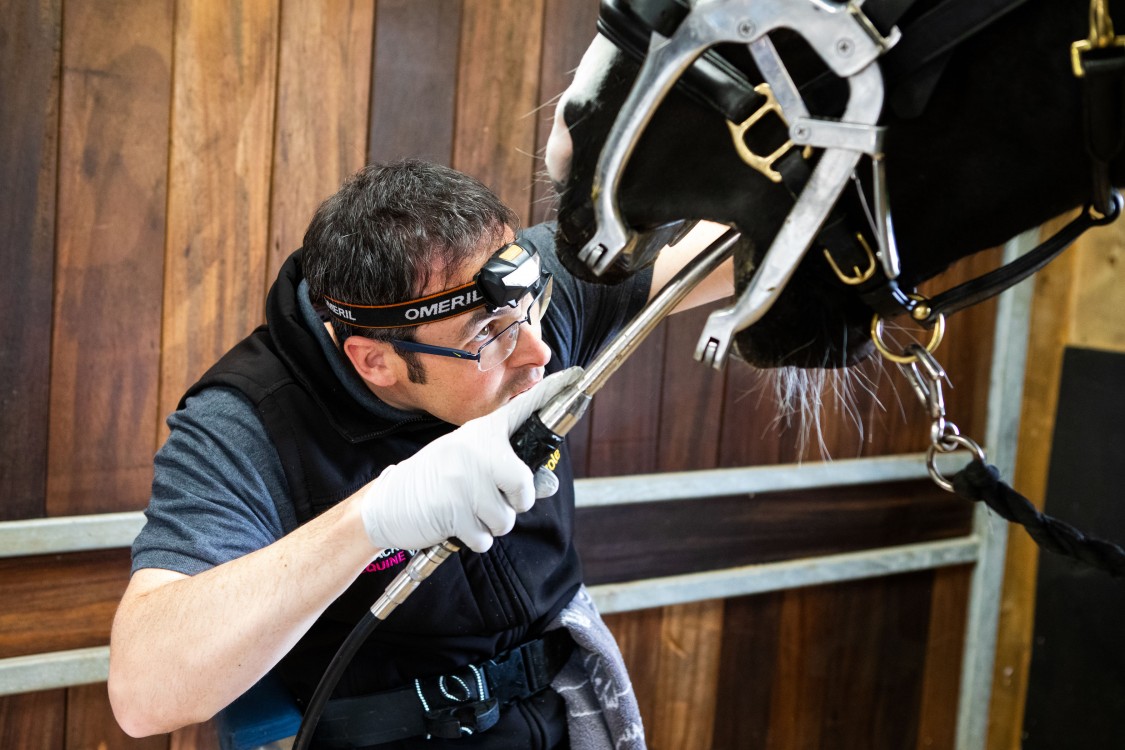Your horse's teeth are as important to their overall health as yours are to you. Sharp edges can affect how your horse tolerates and responds to the bit and in severe cases can affect eating and weight loss.
The first dental examination should be performed at birth, alongside the post-foaling check-up. This will pick up, at an early stage, abnormalities such as parrot mouth and wry nose. Any attempted treatments for these conditions will need to be started early, so prompt recognition of these abnormalities is required.
Young horses have softer teeth and, as a result, form sharp edges more quickly which can result in trauma to cheeks and tongue. It may be necessary for some horses to have routine dental examinations (and rasping of the teeth if necessary) from 1 year of age. Otherwise dental examination and rasping should be started prior to bitting the horse for the first time.
Equine dental care is best performed on a little and often basis. Assuming that routine removal of sharp enamel overgrowths is all that is required, horses up to the age of 10 years should be checked every 6 months. This interval may be lengthened to 12 months for individuals with good dentition.
Horses with more severe dental problems may need to be seen more frequently. We would be happy to advise you on this at the time we examine your horse. All our vets are equipped with dental examination and rasping equipment as well as power floats in order to offer you the highest standard of equine dental care. Motorised dental instruments can be very useful in dental as they allow very precise removal of overgrowths compared with manual equipment and when used appropriately are preferable. However, the patient (your horse) needs to be restrained adequately and may require the use of sedatives to ensure a safe, stress-free procedure for all.


